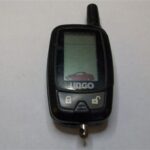Garmin devices are renowned for their fitness and outdoor activity tracking capabilities. Many users, however, wonder if they can leverage their Garmin GPS for car-related activities beyond just running, cycling, or hiking. While primarily designed for fitness, the GPS functionality in Garmin watches and devices holds potential for broader applications, especially for those who blend outdoor lifestyles with driving and vehicle-based adventures.
Understanding Garmin’s Fitness Focus
Garmin’s core market revolves around fitness enthusiasts and athletes. Their devices are meticulously engineered to capture data relevant to workouts: heart rate, pace, distance, calories burned, and more. This specialization means that standard Garmin activity profiles are optimized for exercises like running, swimming, and cycling, automatically calculating fitness metrics based on detected movement and sensor data. When you use a typical “Run” or “Bike” profile while driving, your Garmin may interpret the motion as exercise, leading to inaccurate calorie estimations and fitness data logs.
Beyond Fitness: Use Cases for Garmin GPS in Cars
Despite their fitness orientation, the inherent GPS tracking in Garmin devices can be valuable in various car-related scenarios:
Boating Adventures with Garmin
Imagine spending a day on a motorboat, exploring a lake. While not strenuous exercise, you might still want to record your route, speed, and distance traveled on the water. Using a standard fitness activity profile in this context would misrepresent the activity as intense exercise. A dedicated car or “boating” mode could accurately track the GPS path and speed without falsely attributing calorie burn or exercise mileage. This is particularly useful for those who combine boating with camping or hiking trips, wanting a comprehensive record of their entire outdoor experience.
Off-Roading and Camping Expeditions
For adventurers who drive off-road vehicles to reach remote camping spots, a Garmin GPS could document the journey. Tracking the off-road trail, distance covered, and speed is helpful for navigation and trip logging. Again, using a fitness profile while driving an SUV would lead to inaccurate fitness data. A car-specific GPS mode would allow users to differentiate between the driving portion of their trip and subsequent hiking activities, providing a clearer picture of both the journey and the fitness aspects of their outdoor adventures.
The Need for a Dedicated “Car Mode”
The examples above highlight the need for a “car mode” or a customizable GPS tracking option within Garmin devices that goes beyond fitness metrics. Users are looking for the ability to record GPS tracks, distance, and speed during car journeys without triggering fitness-centric algorithms. This would allow for versatile use of Garmin devices for broader outdoor and travel logging, catering to users who integrate driving into their active lifestyles.
Potential Solutions and Customization
While Garmin doesn’t currently offer a dedicated “car mode” out-of-the-box, there might be potential avenues for achieving similar functionality. Exploring Garmin’s Connect IQ platform for custom apps could be one approach. It may be possible to develop or modify a custom app that utilizes the GPS to record track, distance, and speed, but bypasses the heart rate and calorie tracking features associated with fitness profiles. This would essentially provide the desired basic GPS recording screen during car travel without feeding misleading data into Garmin Connect.
Ultimately, the ability to program a Garmin GPS for car use, in a non-fitness tracking context, would significantly enhance its versatility for outdoor enthusiasts and travelers. As users increasingly seek to integrate technology into diverse aspects of their active lives, expanding the functionality of devices like Garmin GPS to accommodate car-based activities presents a valuable opportunity.
